ISKCON had obtained a nice property here and constructed simple and functional buildings, hosting Their Lordships Sri Sri Radha Madhava and Their devoted servants. The temple room is very spacious, and a big garden is surrounding the buildings.
We were well received by the ladies of the congregation, who were very hospitable and eager to serve. For Indian people my diet is a little unusual, with lots of raw food and sprouts, and no chili and oil. But here the ladies had gone out of their way to make all the necessary arrangements, and they had even been able to find celery and fresh herbs such as parsley!
On the first morning I was invited to give the Caitanya Caritamrta class. The devotees were eager to hear and inquire, and we had nice and deep discussions. I could sense that the humble and welcoming mood of the temple president had permeated the entire temple atmosphere.
Whatever mood and attachments we carry in our hearts, others around us will catch. This is especially so for the leaders - their mood permeates the entire temple.
Our course "Women in Spiritual Culture" was well attended by around sixty eager Matajis. It was a nice group - very mixed, with elderly and senior ladies, but most of them were young and well educated girls.
Within three days we managed to go through all the topics of the course. Our time schedule was intense, with six hours lessons every day.
The ladies eagerly accepted the idea of demonstrating the topics in little role plays and sketches, which added a good sense of humour and creativity to the seminar and involved the participants to make a contribution. The atmosphere was sweet and deep, and at the final closing session the devotees shared heart moving realizations, expressing deep gratitude for the knowledge they had received. One lady shared: "Your presentations brought tears to our eyes! Thank you for reminding us of our culture....!" And they urged me to visit regularly and conduct more seminars. Once again I came to understand how relevant, important and almost revolutionary this course is even here in India. Especially the young and educated ladies are eagerly pursuing the idea of becoming independent professional career women, and already the divorce rate is increasing. So hearing this knowledge on spiritual culture from a German woman's mouth is especially transformational to their hearts and minds. We concluded the program with morsels of maha prasadam from Krsna Balarama in Vrindavan.
Nand Maharaja Prabhu saw me off with a smile, exclaiming: "This temple is your home, Mataji! Please come back again soon....."
On the 16th of March I flew on to Dhaka/Bangladesh - hot and humid weather welcomed me on my arrival.
I had ten days left in this part of the world before returning to Europe.
Even though I had told the devotees in Dhaka not to arrange any programs for me, they nevertheless kept me busy. I spent one full day giving a seminar to the ladies introducing the same topic of "Women in Spiritual Culture". One morning I gave the SB class, and on the very last day the Youth Preachers had arranged a program with around 70 practicing student boys on the topic of "trnad api sunicena."
Radhanath Swami explains how a Vaisnava is like salt. Although salt brings out the total flavor of a tasty preparation more than any other part, it remains hidden, and we glorify every other ingredient but salt. Similarly, a true devotee performs all kinds of service, even great things, but always prefers to remain hidden, not seeking credit or glory. And we all know what happens when the salt wants to be noticed: the entire preparation is spoilt. Too salty! In the same way, the offering to Krsna is spoilt, when we seek credit and recognition, and want to be noticed.
Also the salt melts giving up its individual identity to increase the taste of the whole offering. In the same way the devotee is willing to sacrifice everything, even the recognition of his contribution, to make the best offering to Krsna. Although the salt melts, it doesn't merge. It still remains distinct. Likewise the humble devotee has his unique offering to make in the service to Sri Krsna.
Only that food is nourishing to the body which is well digested. Undigested food, even if of high value, creates toxins in the body and thus leads to disease. In the same way, any good talent and ability, any opulence becomes toxic if not digested with humility. Humility is the digestive medicine for our talents and abilities. The most wonderful talent and opulence turns into the greatest stumbling block for our spiritual life, if it leads to pride. It will poison our bhakti lata.
On the 27th of March I flew off to Frankfurt/Germany....
Your servant, Devaki dd

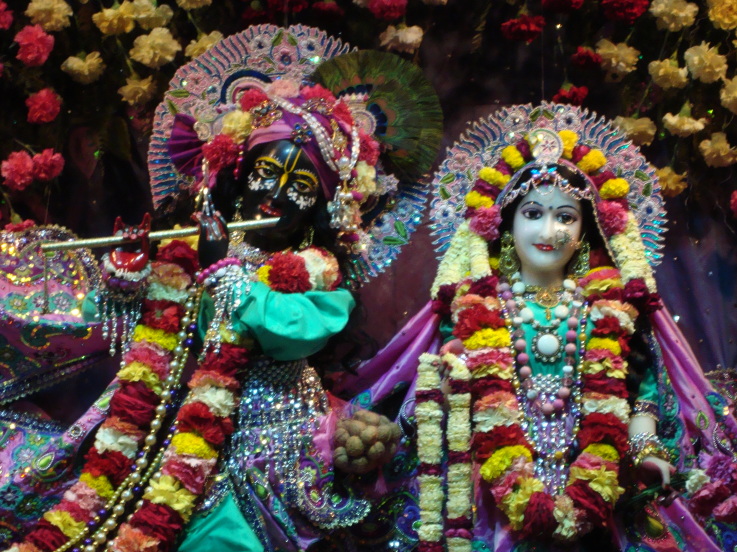
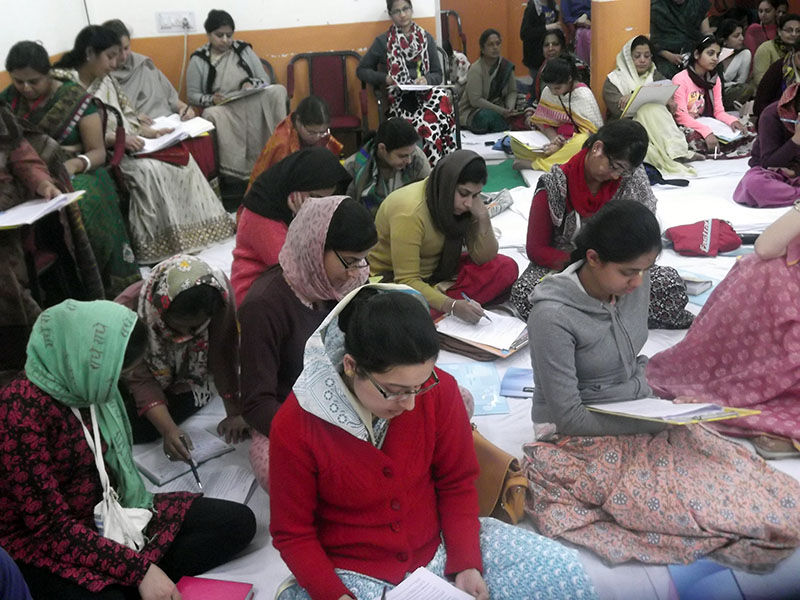
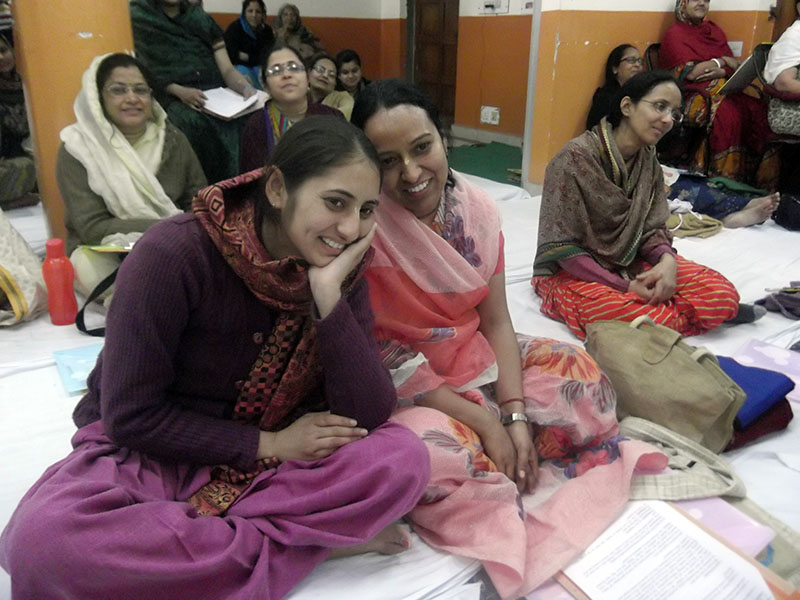
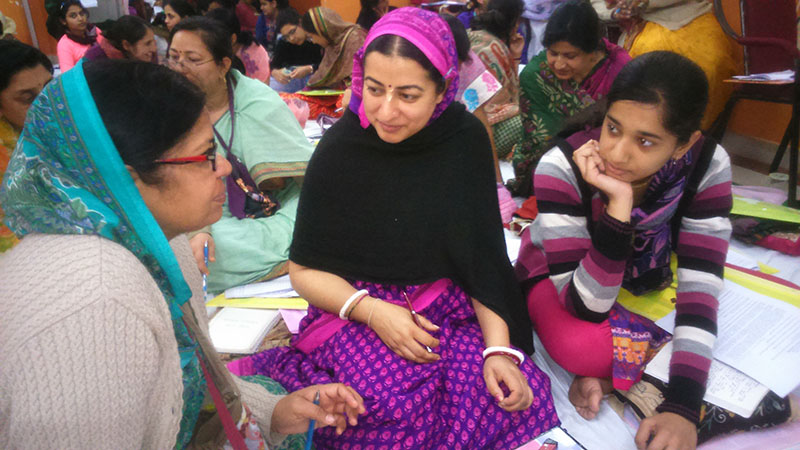
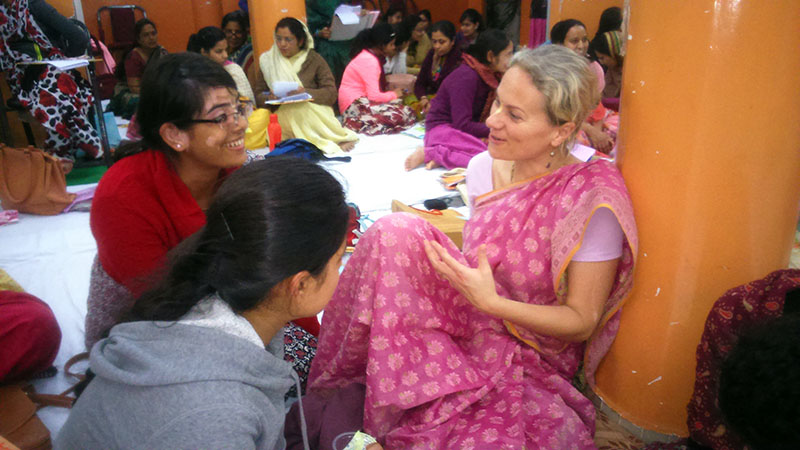
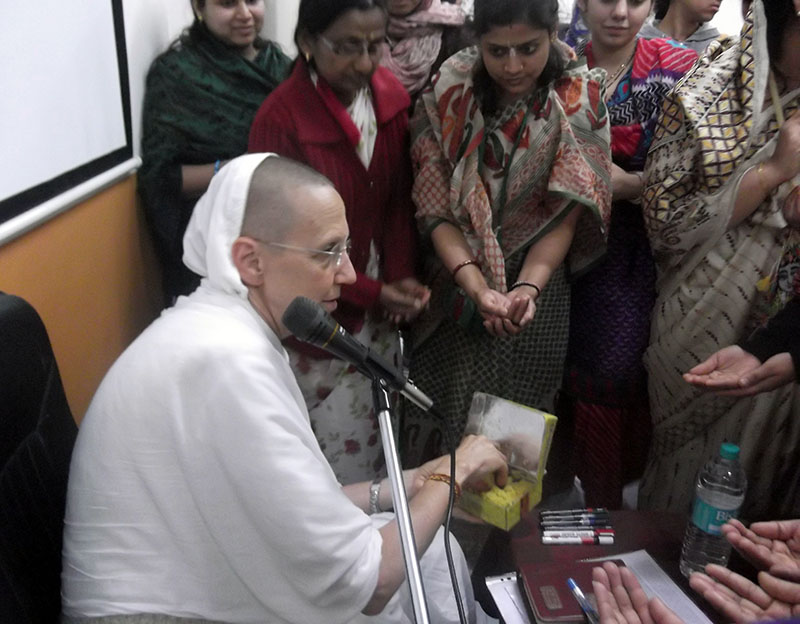
 RSS Feed
RSS Feed
